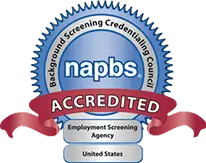In today’s environment where big data dominates the headlines and drives many changes in the workplace, it is no surprise that the massive data brokers are portraying that public record database search is an actual investigation and has somehow replaced the work of real investigators. The reality is much different.
Yes, there is no question that these databases are useful and make quick work of finding many records and aggregating them in an easily digestible format. In the past, all of that work had to be done by investigators. What is missing from the conversation about these public record database searches is that they are wildly incomplete. They do capture many records, but the list is far from complete or all encompassing. Just in the arena of court records, less than half of the courts in the country feed electronic records to these databases. Then one must understand that many of the records don’t easily, robotically identify every matter that is connected to the person you are searching for. Court cases don’t always include a person’s full name, social security number and address. When someone has a common name and no other confirmed identifiers in the record, the databases don’t report that, because a database can’t take it any further to confirm or deny that it’s a match. The same problems exist with every other type of public record that these databases scrape.
 The truth of the matter is that many attorneys and risk managers don’t realize the limitations that come with these public record database searches. To make matters worse, these same types of clients are also faced with somewhat of a dilemma because they don’t often have another resource to go to for the maximum information. This is largely due to the private investigator industry being such a hodge-podge. Many PI’s have limited or no resources to dig deeper, to leverage open source information, to reach beyond databases. In fact, many PIs are engaged to provide a real background investigation and they will simply run a commercial public record database search, put it on their letterhead and sell it as an investigation. They will never admit to as much, which leads the intelligent attorney or risk manager to disregard the use of all private investigators because of the “bad apples”.
The truth of the matter is that many attorneys and risk managers don’t realize the limitations that come with these public record database searches. To make matters worse, these same types of clients are also faced with somewhat of a dilemma because they don’t often have another resource to go to for the maximum information. This is largely due to the private investigator industry being such a hodge-podge. Many PI’s have limited or no resources to dig deeper, to leverage open source information, to reach beyond databases. In fact, many PIs are engaged to provide a real background investigation and they will simply run a commercial public record database search, put it on their letterhead and sell it as an investigation. They will never admit to as much, which leads the intelligent attorney or risk manager to disregard the use of all private investigators because of the “bad apples”.
Good news at last. There are private investigators who can and do give you an information edge and move past the limited information that public record database searches provide. If you are looking for an intelligence edge over your opponent, the right private investigator can bridge that gap between a database search and a real investigation.










